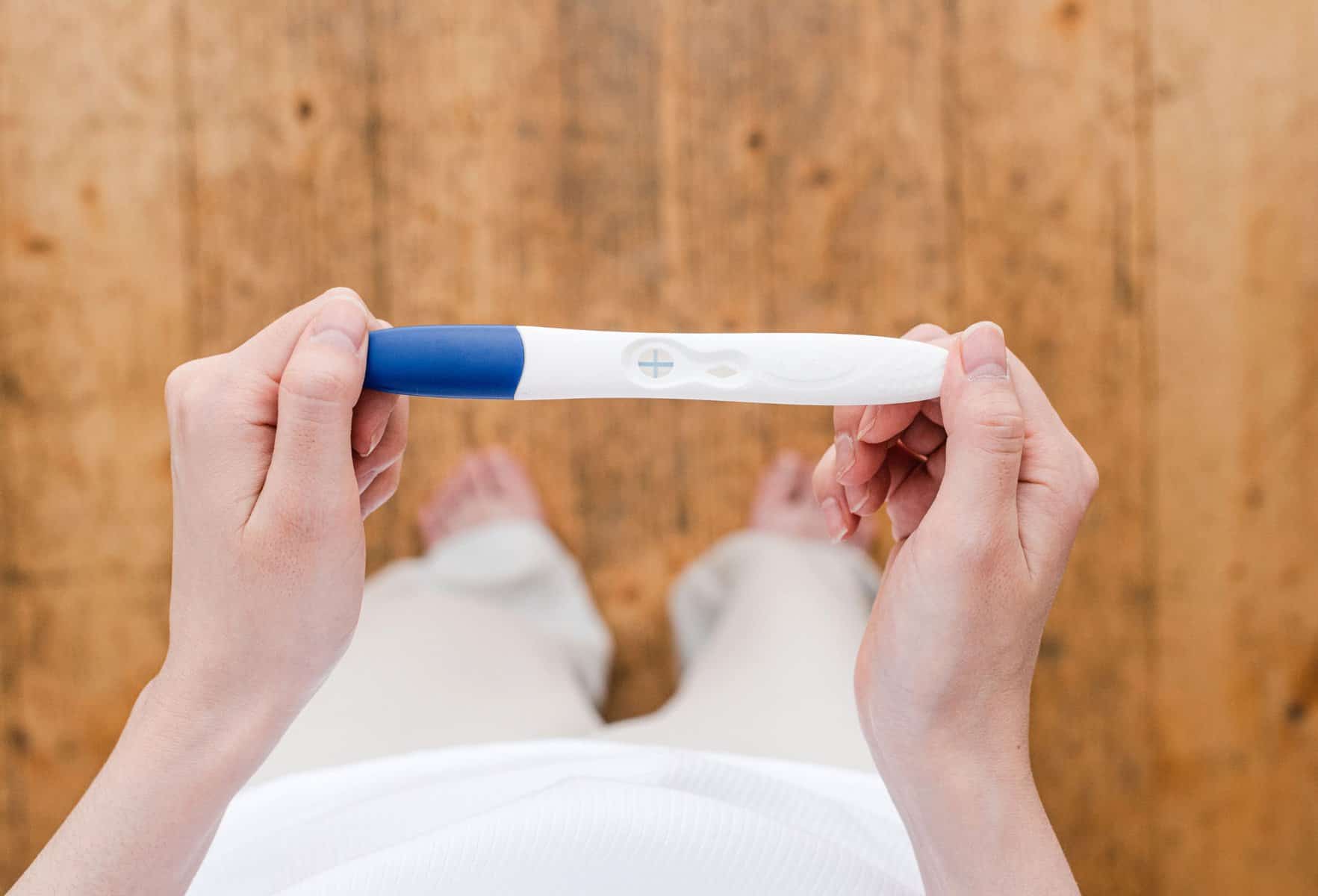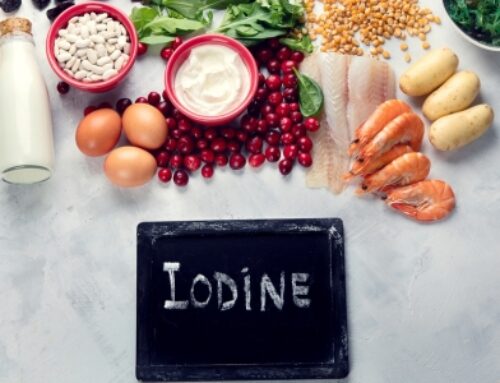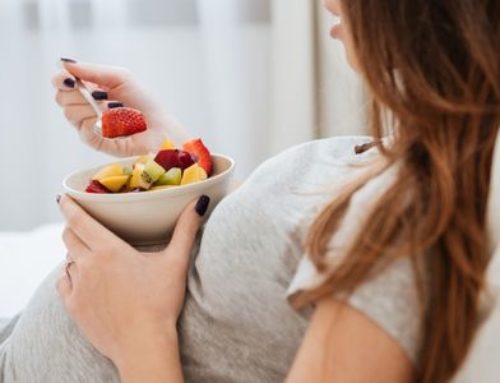
You may be considering starting a family, or maybe you have been trying to conceive for a while now and are looking at what else you can do to support your changes of conceiving. You may even have Polycystic Ovarian Syndrome (PCOS).
Someone might suggest to you that you should go ‘low-carb’ to improve your chances of getting pregnant. So, you cut back your intake of fruit, cereals, bread, pasta, potatoes, dairy and chocolate. You might feel great at first, but then you start noticing there may be down sides to this new way of eating. Your usual go-to snack may be off the menu, eating out becomes tricky and you might start feeling a bit low in energy or bloated. But it’ll help you get pregnant, won’t it?
Diets can help support fertility
Whilst we know optimising your diet can help support fertility (1), there is no one ‘fertility’ diet, and no amount of healthy eating will overcome barriers to fertility such as age, genetics and structural issues.
However, a diet rich in fruit, vegetables, wholegrains, fish, poultry and healthy fats is linked with ‘better’ fertility for all genders (2).
For males, this was through improvements in sperm quality (concentration, motility or morphology). For women, this was through improving ovulatory function and hormonal regulation.
This is not new news; a study of a cohort of 17,544 women from the Nurses’ Health Study II found those who had the highest intake of a ‘fertility diet’ i.e., ‘full-fat dairy foods, iron (Fe), monounsaturated fats, and plant protein’ prior to conception had
‘a 66% lower risk of infertility related to ovulatory disorders and a 27% lower risk of infertility due to other causes compared to women with the lowest intake of this type of diet'(2) .
This is great because we want to focus on building a diet pattern based on including more wholefoods rather than what we can cut out or the nitty gritty of micronutrients (in the absence of deficiency or solid wholefood foundations).
Preconception can be a stressful time, let’s make it easier on ourselves.
Do low carb diets improve fertility outcomes?
The short is answer is maybe. The jury is still out because of the different interventions used in studies. We know that managing carbohydrate loads, their distribution across the day and the quality can help with blood sugar management and in turn may positively influence insulin resistance and improve ovulatory function, particularly in some women with Polycystic Ovarian Syndrome (5) . However, that is only one part of the picture.
One of the issues is there isn’t a consensus in the literature of what constitutes a low carbohydrate diet. For example, one study pegs it at <26% of daily macronutrient intake (<130g carbohydrate/day) (3), whilst two others classified it as <45% of daily calorie intake (4, 5). Another issue is whether there was a calorie deficit as well as a reduction in carbohydrate consumption. Is it the amount of carbohydrate that’s impacting the fertility outcomes or is it weight loss or is it both? Then, if carbohydrates are reduced, what is it replaced with? Fats? Protein? Vegetables? What are the impacts of these changes? As you can see, there are so many moving parts! These factors can all impact your metabolic health which can impact the quality of eggs and sperm.
What about keto?
Some people find they love it, some find they hate it. A true ketogenic diet (high fat, modest protein and very low carb diet) was originally used as medical nutrition therapy to manage epilepsy in children. Over time it seems to have gained popularity as a way to lose weight. The idea is to reduce dietary carbohydrate intake to <50g per day to force the body to use up its stores of carbohydrates then use fat as its main energy source. This could be through food or using meal replacement shakes.
On one hand, this could help you reduce your intake of highly refined carbohydrates and associated saturated fats in those foods e.g., pizza, ice cream, biscuits and chips; and increase your intake of vegetables, nuts and protein (thereby potentially lowering overall energy intake as protein and fat are incredibly satiating).
On the other hand, reducing wholegrains, fruit, some vegetables and dairy, and increasing animal proteins and saturated fat can have the unintended side effects of constipation, low energy, bloating, poorer egg/sperm quality, elevated cholesterol and micronutrient deficiencies.
Outside of what you’re eating, this type of restrictive diet can significantly impact on enjoyment of food and ability to eat socially. For some, it could trigger an eating disorder or disordered eating.
From a weight loss perspective, it does not result in clinically significant weight loss at 1 year.
A keto diet is not recommended immediately prior to conception due to the risk of nutrient deficiencies, or during pregnancy due to the potential detrimental impacts of ketones crossing the placenta and negatively impacting the baby’s future cognitive and/or functional abilities.
The bottom line
Think about what approach works best for you and your lifestyle.
Focus on the bigger picture, choose wholefood carbohydrate options where possible as these will tend to have more nutrients than their more processed forms. Balance these out with lean protein and vegetables. Finding ways to add more vegetables to your meals can also help you reduce your carbohydrate load and increase fibre and nutrient intake.
Changes you can make:
- Swap white bread/wraps for wholegrain bread/wraps
- Swap for wholemeal varieties of pasta/noodles/cous cous
- Try to include vegetables at main meals
- Opt for wholegrain cereals e.g., rolled oats with yoghurt, flaxseeds and fruit
- Try to include wholegrains such as barley, quinoa, rice
- Recipes you could try: Salmon, Crispy Potatoes and Garlic Almond Vegetables, Cheesy Baked Sweet Potato with Lemon Spiced Chicken and Spring Vegetable Pizza
Consider booking in with a dietitian for individualised advice that fits in with your life.
References:
[1] Gaskins, A. J., & Chavarro, J. E. (2018). Diet and fertility: a review. American journal of obstetrics and gynecology, 218(4), 379–389. https://doi.org/10.1016/j.ajog.2017.08.010
[2] Aoun, A., Khoury, V. E., & Malakieh, R. (2021). Can Nutrition Help in the Treatment of Infertility?. Preventive nutrition and food science, 26(2), 109–120. https://doi.org/10.3746/pnf.2021.26.2.109
[3] Oh R, Gilani B, Uppaluri KR. Low Carbohydrate Diet. [Updated 2022 Jul 11]. In: StatPearls [Internet]. Treasure Island (FL): StatPearls Publishing; 2022 Jan-. Available from: https://www.ncbi.nlm.nih.gov/books/NBK537084/
[4] Georgios K. Markantes, Gina Tsichlia, Neoklis A. Georgopoulos, Chapter 7 – Diet and exercise in the management of PCOS: Starting from the basics, Editor(s): Evanthia Diamanti-Kandarakis, Polycystic Ovary Syndrome, Elsevier, 2022, Pages 97-115, ISBN 9780128230459, https://doi.org/10.1016/B978-0-12-823045-9.00010-9.(https://www.sciencedirect.com/science/article/pii/B9780128230459000109)
[5] McGrice, M., & Porter, J. (2017). The Effect of Low Carbohydrate Diets on Fertility Hormones and Outcomes in Overweight and Obese Women: A Systematic Review. Nutrients, 9(3), 204. https://doi.org/10.3390/nu9030204



